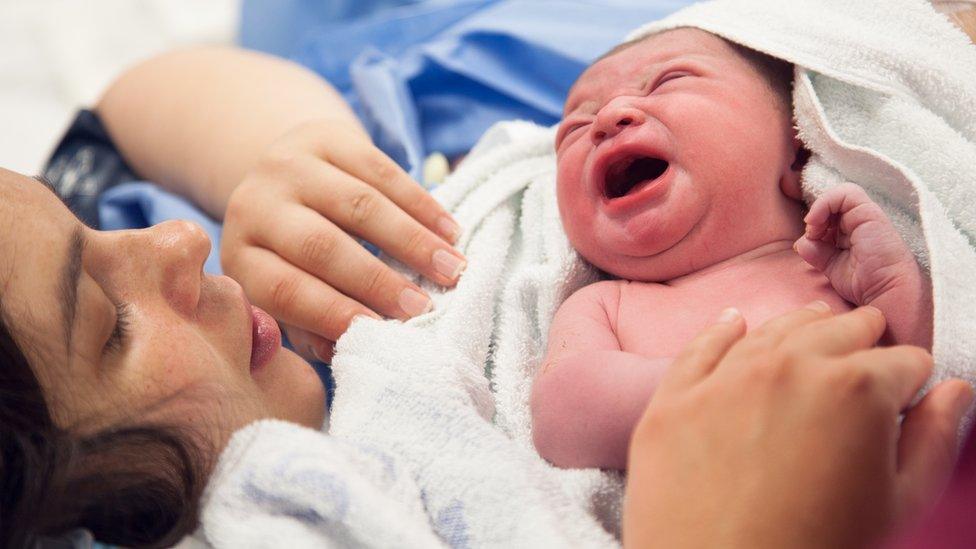Birth rate in England and Wales hits record low
- Published
- comments

The birth rate in England and Wales - measured as a proportion of the total population - hit a new low in 2018, according to the Office for National Statistics.
It says the trend could be driven by falling fertility rates and an ageing population.
Fertility rates decreased in all age groups except women aged 40 and over.
Last year was the third in a row in which the number of live births has come down.
In total, 657,076 babies were born in England and Wales in 2018 - down 3.2% on 2017, and nearly 10% on 2012.
The birth rate decreased to 11.1 live births per 1,000 population in 2018, from a high of 20.5 in 1947, the ONS report shows, external.
The average number of children born to women, known as the total fertility rate, is also down, to 1.7 - from 1.76 in 2017.
This is a good measure of fertility levels and can be affected by changes in the timing of when women have babies, as well as size of families and population structure.
Total fertility rate is now at its lowest since the 1999 to 2002 period.
In England and Wales, ONS stats show that the stillbirth rate has reached a record low for the second year in 2018 - of 4.1 stillbirths per 1,000 births.
A stillbirth is a baby born showing no signs of life after 24 or more weeks of pregnancy.
The government in England has committed to reducing the stillbirth rate to 2.6 per 1,000 by 2025.
- Published27 March 2019
